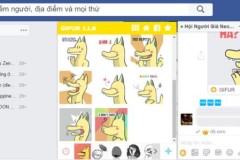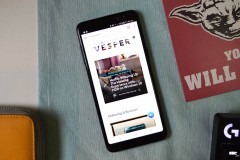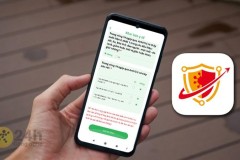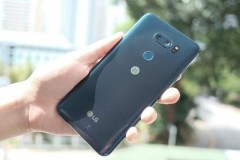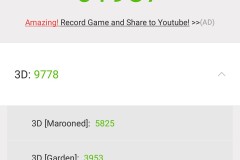Washington, D.C., Nov. 18, 2024 (GLOBE NEWSWIRE) -- The Women in the Digital Economy Fund (WiDEF) is proud to announce the awardees of its first round of funding. Ten organizations, spanning eight countries across East Africa, West Africa, South Asia, and Latin America, have been selected for their innovative solutions and impact in tackling the gender digital divide.
The gender digital divide disproportionately impacts women in low- and middle-income countries (LMICs). In fact, the International Telecommunication Union (ITU) reported last year that 244 million more men around the world than women used the internet. This staggering gap leaves millions of women and girls excluded from the transformative power of digital technologies that drive opportunities in education, employment, entrepreneurship, and financial independence. Such vast disparities in internet usage are exacerbated by a host of barriers across many geographies. Without targeted, sustained action, this digital divide will only deepen with the rapid advancement of emerging technologies – further marginalizing women and girls around the globe. That is where WiDEF comes in.
WiDEF launched its first call for proposals in March 2024, receiving more than 1,350 applications from 98 countries. Semifinalists for the award were announced in September 2024. An external selection panel of industry leaders assessed this final group of applicants for the potential impact of their proposals, their track records, and the clarity of their vision for the future. The ten awardees – eight of whom are women-led – will receive financial support ranging from $500,000 to $1.5 million USD to scale up their solutions over the next two years.
“We are incredibly proud to support this diverse and innovative group of leaders lighting the path to universal, gender-equitable digital inclusion. By investing in local and women-led initiatives, WiDEF is advancing a real shift not only in what gets funded, but in who gets funded. We are confident that, alongside our partners, these amazing leaders will help break down the barriers preventing women and girls from participating fully in the digital economy. We could not be more excited to have the privilege to support and learn alongside them.” said Christian Pennotti, Chief of Party for WiDEF and Managing Director at CARE.
The awardees are:
- CITAD (Nigeria): Center for Information Technology and Development (CITAD) is tackling the gender digital divide in northern Nigeria by enhancing young people's digital skills, expanding their access to the internet, and advocating for policies and practices that promote gender equality and inclusive civic engagement.
- DEMO (Pakistan): DEMO is addressing Pakistan's gender digital divide by providing digital entrepreneurial training to 10,000 female university students in remote and underserved regions, aiming to empower women and ensure financial independence.
- DOT Kenya (Kenya, Ethiopia): Digital Opportunity Trust (DOT) Kenya's 'Digital Skills at Scale' initiative aims to empower 10,000 young women in Kenya, Ethiopia, and Rwanda with digital and entrepreneurial skills, addressing socioeconomic barriers and safety concerns, and fostering leadership through 'Digital Champions' to drive community change.
- El Proyecto Hambre (The Hunger Project) (Mexico, Malawi, Ghana): El Proyecto Hambre’s 'Empowering the Digitally Underserved” (EDU) program works to bridge the digital divide for indigenous persons, women, and people with disabilities in Mexico, Malawi, and Ghana. The program focuses on increasing internet access and promoting participation in the digital economy.
- Ensibuuko (Tanzania, Ghana): Ensibuuko will digitize Village Savings and Loan Associations (VSLAs) in Uganda, Tanzania, and Ghana by creating 5,000 digital savings groups led by young women with aspirations to empower 125,000 members with improved financial management and opportunities through digital innovation.
- KICTANet (Kenya): KICTANet's 'Empowering Kenya Rural Women Through Digital Literacy' program aims to boost digital inclusion for marginalized women in 21 rural counties by providing digital literacy training, affordable loans for devices, and comprehensive support.
- New Sun Road (Guatemala): New Sun Road's Digital Community Centers (DCCs) are set to empower approximately 250,000 indigenous Guatemalan women by providing electrification, internet access, and digital literacy training in both Spanish and Mayan languages to remote communities, addressing barriers of isolation, education, and representation in the digital economy.
- Player First Limited / MESH (Kenya): Player First Limited/MESH's Bridging the Gender Digital Divide (BGDD) program seeks to empower female-led informal micro-businesses in Kenya by providing an online community platform for marketing, financial management, and customer engagement for young entrepreneurs.
- Smart Regional Consultants (Kenya): SMART Regional Consultants (SRC) aims to bridge Northern Kenya's digital gender divide by enhancing economic opportunities for rural women through digital literacy programs, leveraging five existing incubation centers, and influencing policy for a more inclusive digital economy.
- Tech Project Women (Nigeria): Tech Project Women, a feminist organization in Nigeria, seeks to enhance the personal and societal development of women and girls in peri-urban communities by improving digital skills, financial inclusion, and employability, while also addressing online harassment and gender-based violence.
To learn more about these incredible organizations, visit widef.global/R1awardees.
“The digital gender gap in Kenya is estimated at 43%, while in Ethiopia, only 11% of women have digital access compared to 20% of men. With support from WiDEF, DOT is accelerating the journey towards gender equality within the digital economy. This grant will enable us to empower 10,000 young people—70% women—with the skills to thrive in the digital economy. By addressing the gender digital divide, we are shaping a future where youth, especially young women, can confidently lead in digital transformation.” said Esther Gathigi Kibugi, Country Director of awardee organization, DOT Kenya.
WiDEF is a collaborative effort by USAID and the Bill and Melinda Gates Foundation to address gender digital inequalities. With new partnerships and investments from the Reliance Foundation and the UPS Foundation, the initiative is committing over $80 million to accelerate progress in digital inclusion. WiDEF's latest call for proposals was launched this November, with a specific focus on India-based organizations. For more information or to join the mailing list, visit widef.global.
About the Women in the Digital Economy Fund
The Women in the Digital Economy Fund (WiDEF) is a joint effort between USAID and the Bill & Melinda Gates Foundation to accelerate progress on closing the gender digital divide. WiDEF is also supported by global anchor partners: Microsoft, the Reliance Foundation, and a growing pool of strategic partners. WiDEF identifies, directly funds, and advances investment in proven solutions to close the gender digital divide, improving women’s livelihoods, economic security, and resilience. WiDEF is managed by CARE, the Global Digital Inclusion Partnership, and the GSMA Foundation. Learn more at: widef.global.

Michael de Vulpillieres CARE +1 929 944 1582 usa.media@care.org










